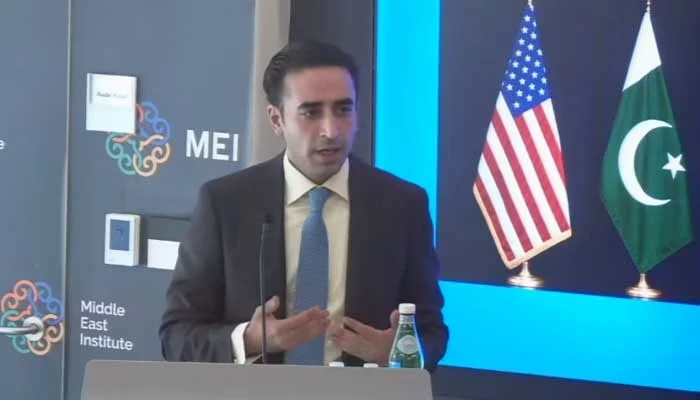
In a stark warning delivered during high-level engagements in New York, former Foreign Minister and Chairman of the Pakistan Peoples Party (PPP), Bilawal Bhutto-Zardari, cautioned that India’s recent use of a supersonic nuclear-capable missile during a standoff with Pakistan has dangerously lowered the threshold for conflict between the two nuclear-armed neighbors.
Speaking at the Middle East Institute and in a subsequent interview with Bloomberg, Bilawal emphasized the perilous nature of the current regional dynamic. “We now have about 30 seconds to decide — off a grainy little image — whether this nuclear-capable missile is actually armed, and how to respond,” he said. He warned that such a compressed decision-making window risks rapid escalation that global powers may not have time to contain.
Lowering the Bar for War
Bilawal accused New Delhi of establishing a destabilizing precedent — what Indian Prime Minister Narendra Modi has termed a “new normal” — in which India reserves the right to launch unilateral strikes on alleged “terrorist camps” within Pakistan’s borders without providing concrete evidence.
“You just need an accusation,” Bilawal said. “And you launch into a full-blown war with Pakistan.”
This strategic shift, he added, makes it more likely that the next military skirmish between the two countries could quickly spiral into a full-scale war, especially given the speed of modern missile systems and lack of trust between the two governments. “Our concern is that the escalation ladder could be climbed far too quickly for even a U.S. president to intervene in time,” he warned.
A Case for Dialogue, Not Deterrence
Bilawal, who is currently leading a nine-member parliamentary delegation at the United Nations, called for a renewed emphasis on diplomacy. “A comprehensive dialogue between India and Pakistan is the only way to prevent future conflicts,” he said. He urged international actors, particularly the United States, to play a more active role in fostering meaningful talks between the two countries.
Water Wars on the Horizon?
In one of the most chilling parts of his address, Bilawal accused India of laying the groundwork for the world’s first “nuclear water war.” Referring to India’s alleged moves to disrupt Pakistan’s water flow — a violation of the Indus Waters Treaty — Bilawal stated: “Cutting off Pakistan’s water supply would be an act of war. We don’t say that in a jingoistic manner — it’s an existential threat.”
He emphasized that any nation, regardless of size or military power, would be forced to fight for survival if its access to water — a fundamental right and necessity — were threatened.
“If this precedent is allowed in Pakistan’s case, it won’t be the last war,” he warned. He called on the United States and the international community to take a firm stand, not only against any violation of the Indus Waters Treaty, but also against the broader threat of using natural resources as weapons.
The Kashmir Factor
Reiterating Pakistan’s long-standing position, Bilawal highlighted that sustainable peace in South Asia is not possible without addressing the root cause: the unresolved dispute over Jammu and Kashmir.
“You can’t cage an entire population, bulldoze their homes, and blind them with pellet guns and then expect peace,” he said. He stressed that a conducive environment in Indian Illegally Occupied Jammu and Kashmir (IIOJK) is essential for counterterrorism efforts to be taken seriously.
Conclusion
Bilawal Bhutto-Zardari’s remarks serve as a sobering reminder of the high stakes in South Asia’s geopolitical landscape. As India continues to assert a more aggressive regional posture, and Pakistan grapples with the implications of a rapidly shrinking reaction time in future conflicts, the risk of miscalculation looms large. Dialogue, mutual respect, and international mediation are no longer optional — they are essential.
